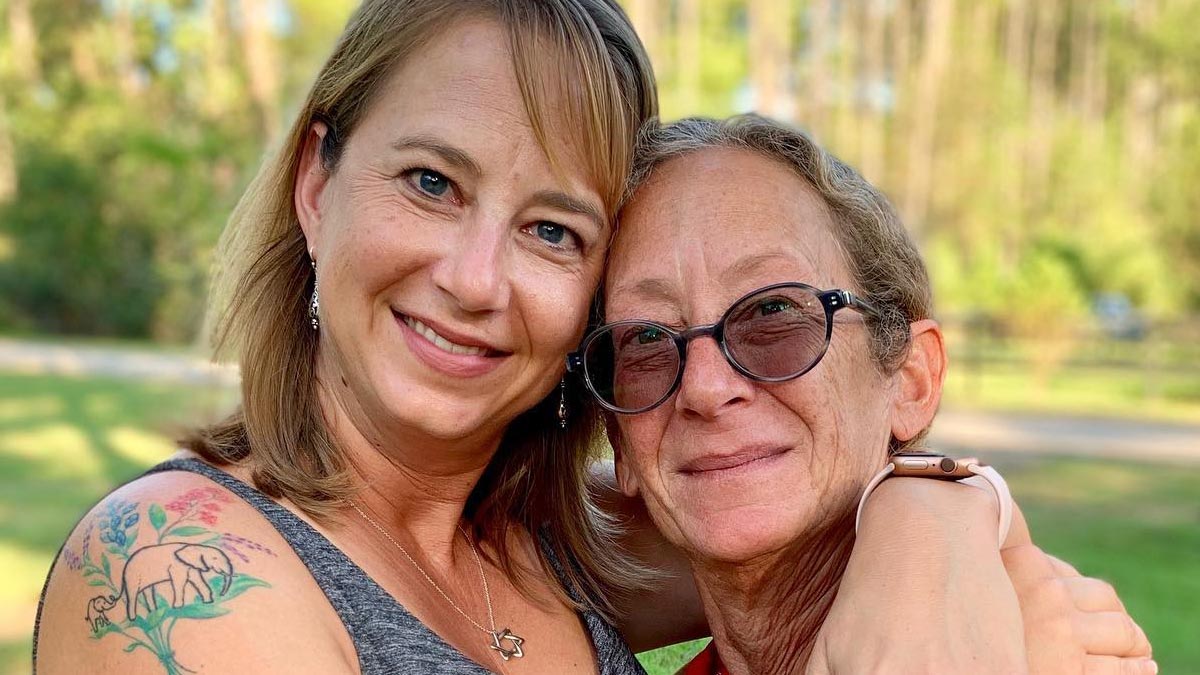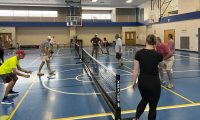“Even though my health keeps improving, and there’s a good chance that I’m cancer free, I still feel stalked, as if the cancer were perched on my shoulder like some unrepentant imp,” wrote blogger Dana Jennings in The New York Times back in 2009. At the time, my mother had just survived her own battle with cancer.
I think about those months even now. My daughter was only a year old. Was she going to lose her beloved grandmother? Was I going to lose my mother?
In the summer of 2009, after years of managing cysts in her breasts, my mother was diagnosed with what felt inevitable: HR+ ER breast cancer. She had a double mastectomy with reconstruction in a nine-hour surgery that felt endless to my father and me.
Post-surgery and recovery, she tried to return to a “normal” life at work and home. Always active, she resumed riding her horse using a body that didn’t feel like her own.
“It was weird,” she said. “From the time you’re small, you know your body. All of a sudden, I didn’t know mine. The surgery completely reshaped me.”
The post-cancer drug Tamoxifen left her feeling unstable and emotional – and physically drained.
At work, close friends rallied around her.
“Everyone was very supportive, but I wanted normal, not supportive. It was hard to strike that balance,” she related.
Twelve years later, she reflects on that time and realizes that maybe nothing ever was the same again.
“I don’t know that I’ve ever fully emotionally recovered from it,” she said. “I keep second-guessing myself. Maybe I should have done chemo/radiation instead of getting a mastectomy. Maybe I shouldn’t have had reconstruction. All these years later, these questions still run through my head.”
My mother isn’t alone in her experiences. The road to “normal” post-cancer is riddled with potholes. For many, the post-treatment journey can be more difficult than the cancer itself. The support systems that were in place throughout treatment dissipate. Visits with medical professionals become less frequent, leaving survivors unmoored. Trusting a body that betrayed you can be difficult.
All of this is expected, according to Dr. Sara Marcino, a psychiatrist with Still Point in Mount Pleasant who works with many cancer survivors.
“People are usually surprised by how difficult the post-cancer return to ‘normalcy’ may be,” she said. “They expect to feel normal, but they struggle emotionally and physically. Some may have lingering struggles with sleep or energy, and many feel self-conscious about physical changes. Fear of recurrence is a significant challenge.”
There’s also the letting go of the stress of an active cancer fight: “Some people find that they don’t quite know what to do with themselves now that the active fight has come to a conclusion.”
Tammy Nichols, a social worker with Prisma Health – Upstate Cancer Institution, knows this journey well. She cared for and lost her mother after a years-long battle with colon cancer; Nichols’ diagnosis of aggressive breast cancer was surprising only because she was so young – 37 – and because it was in her breasts and not her colon.
To say she breezed through treatment would be an exaggeration, but not by much.
“When you’re able to mark days off the calendar one after another and see your hair and nails finally begin to regrow, things begin looking up,” said Nichols. “The reconstruction process was similar. There were still spells of being down, frustrated and exhausted ,but there was a finish line.”
Like with so many others, though, it was the return to “normal” that was hardest: “I have a visceral dislike for that term because life after cancer never feels ‘normal.’ I will never be the person I was before. Cancer irrevocably changes you, your body, mind and outlook.”
Following her experiences, Nichols made life-changing shifts to her career path.
“Prior to my diagnosis, I planned to return to school for my graduate degree in social work,” she said. “But after losing my mother, aunt and grandfather to cancer, then going through treatment myself, I could offer a level of firsthand empathy to others. Sharing that I’ve sat in the chair, lay on the radiation table and shaved my head seems to take some of the frustration off patients trying to express what they’re feeling. More than once, I’ve seen a sigh of relief and heard, ‘You get it.’”
Whether or not she will ever get back to that idea of “normal,” Nichols spends her days helping others through their cancer journeys. For today, that’s enough.
What can cancer survivors do to make the road back to “normal” as easy as possible? Dr. Marcino recommended self-care, routines and utilizing support systems: “A therapist and/or support group may be helpful in this regard. Also, eating well, getting good sleep, exercising and practicing meditation and relaxation are ways in which one can improve outcomes both physically and emotionally.”
The journey can have its positives, too, she added, noting, “Many cancer survivors learn to appreciate life more than they had in the past and practice gratitude more deliberately. Priorities may change in a meaningful way. People sometimes learn to accept themselves – and others – more easily. And, as with all challenges in life, there is the opportunity for growth.”







